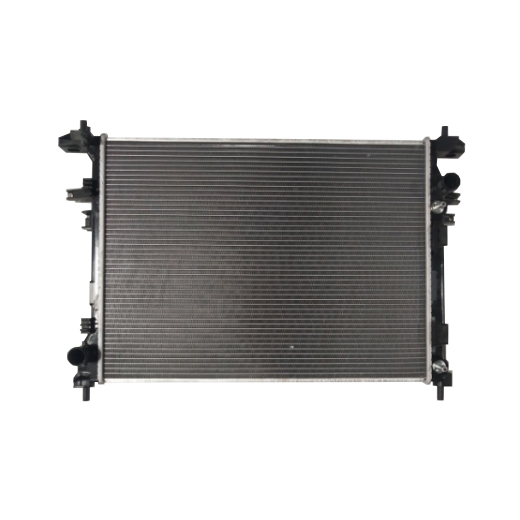Embracing Efficiency: Advantages of Using Aluminum Plastic Radiators in Vehicles
2024-03-01
Introduction:
As automotive technology continues to evolve, manufacturers are constantly seeking innovations to enhance vehicle performance, efficiency, and durability. One such advancement that has gained prominence in cooling systems is the adoption of aluminum plastic radiators. In this blog post, we'll explore the advantages of using aluminum plastic radiators in vehicles and how they contribute to improved cooling efficiency and overall vehicle performance.
1. Lightweight Construction:
One of the most significant advantages of aluminum plastic radiators is their lightweight construction compared to traditional copper-brass radiators. By utilizing lightweight aluminum for the core and durable plastic for the tanks, aluminum plastic radiators contribute to overall vehicle weight reduction. This reduction in weight helps improve fuel efficiency and handling, leading to better performance and reduced emissions.
2. Efficient Heat Transfer:
Aluminum plastic radiators are designed to facilitate efficient heat transfer from the engine coolant to the surrounding air. The aluminum core, with its intricate network of small tubes and thin fins, provides a large surface area for heat exchange. This allows for rapid cooling of the coolant as air passes over the fins, resulting in more effective engine cooling and temperature regulation. As a result, vehicles equipped with aluminum plastic radiators experience improved engine performance and longevity.
3. Corrosion Resistance:
Unlike traditional copper-brass radiators, which are prone to corrosion over time, aluminum plastic radiators offer superior corrosion resistance. The plastic tanks are highly resistant to rust and corrosion, even in harsh environmental conditions. Additionally, aluminum's natural resistance to corrosion further enhances the durability and longevity of aluminum plastic radiators, reducing the risk of leaks and cooling system failures.
4. Durability and Longevity:
The combination of lightweight aluminum and durable plastic materials in aluminum plastic radiators results in a robust and long-lasting cooling system. Unlike traditional radiators, which may succumb to corrosion, erosion, or physical damage, aluminum plastic radiators are more resistant to wear and tear. This durability translates to fewer maintenance requirements and lower repair costs over the lifespan of the vehicle, providing drivers with peace of mind and reliable performance.
5. Improved Performance:
By enhancing cooling efficiency, reducing vehicle weight, and minimizing the risk of cooling system failures, aluminum plastic radiators contribute to overall vehicle performance. Vehicles equipped with aluminum plastic radiators experience more consistent engine temperatures, which helps optimize engine performance and fuel efficiency. Additionally, the lightweight construction of aluminum plastic radiators improves vehicle handling and responsiveness, enhancing the driving experience for motorists.
Conclusion:
In conclusion, the advantages of using aluminum plastic radiators in vehicles are clear: lightweight construction, efficient heat transfer, corrosion resistance, durability, and improved performance. By embracing aluminum plastic radiators, automakers can enhance vehicle efficiency, reliability, and longevity, ultimately providing drivers with a smoother and more enjoyable driving experience. As automotive technology continues to evolve, aluminum plastic radiators are poised to play an increasingly important role in cooling system design, shaping the future of vehicle engineering for years to come.


